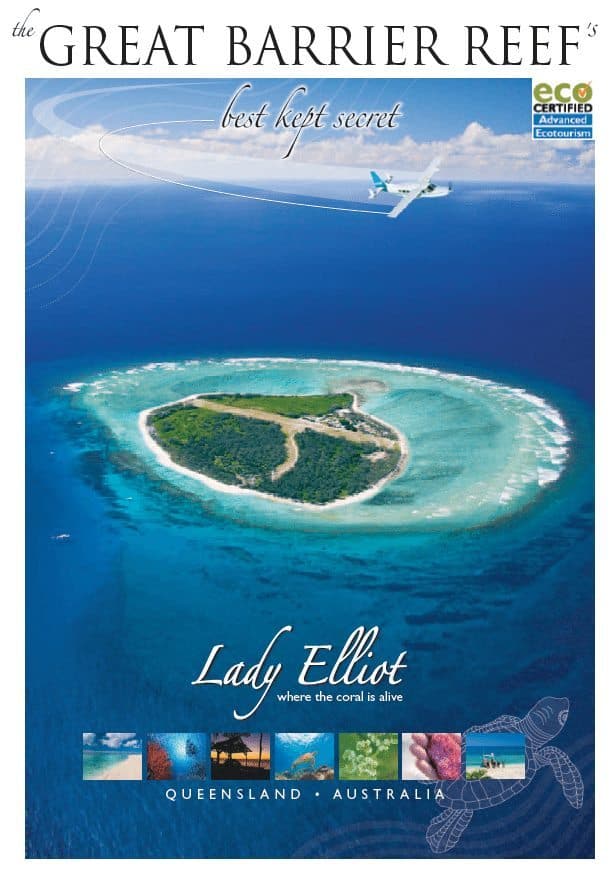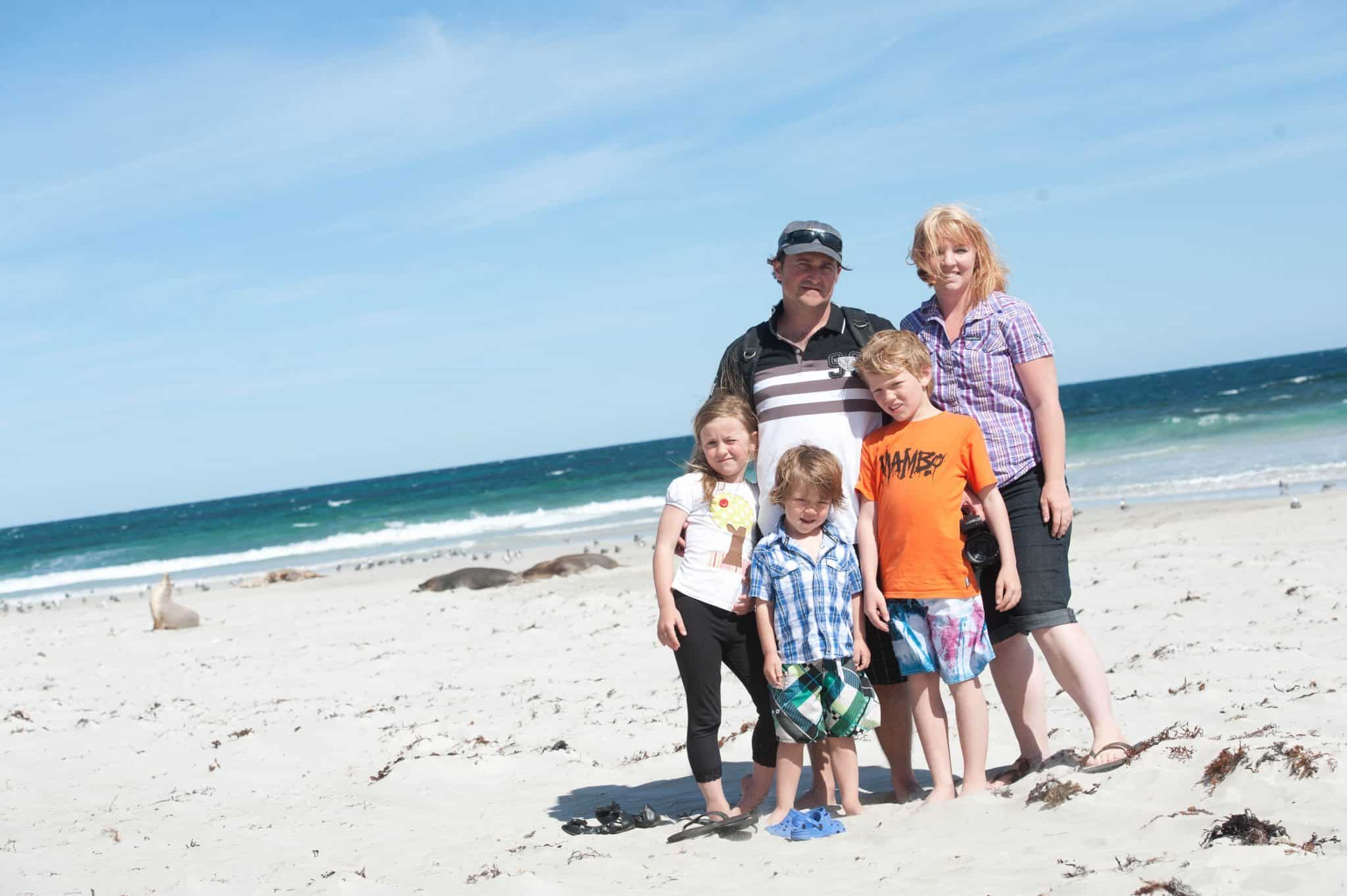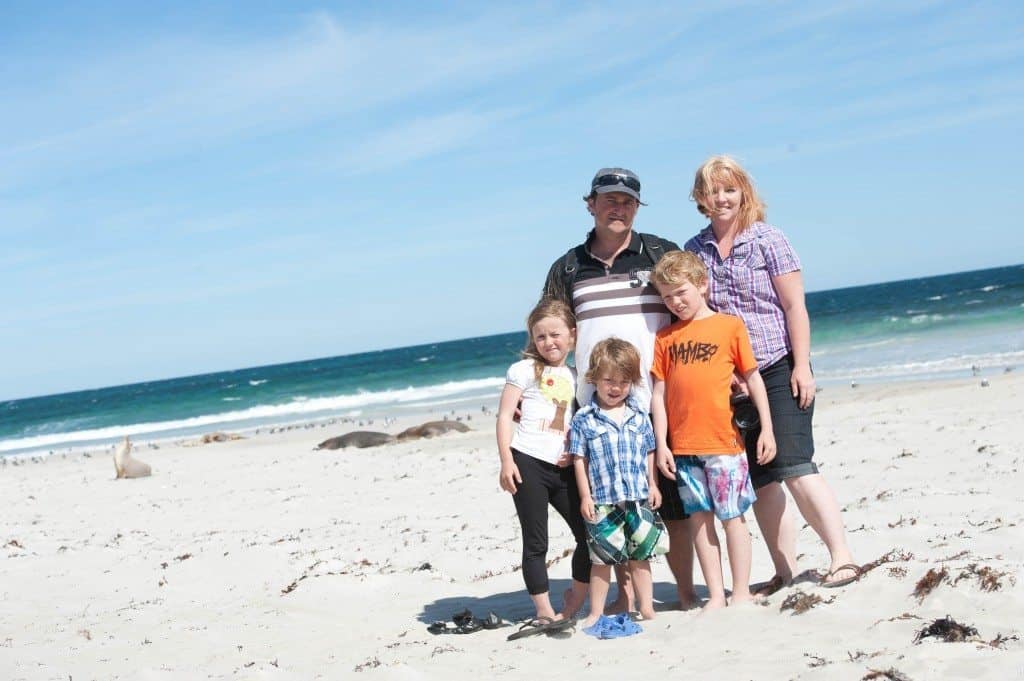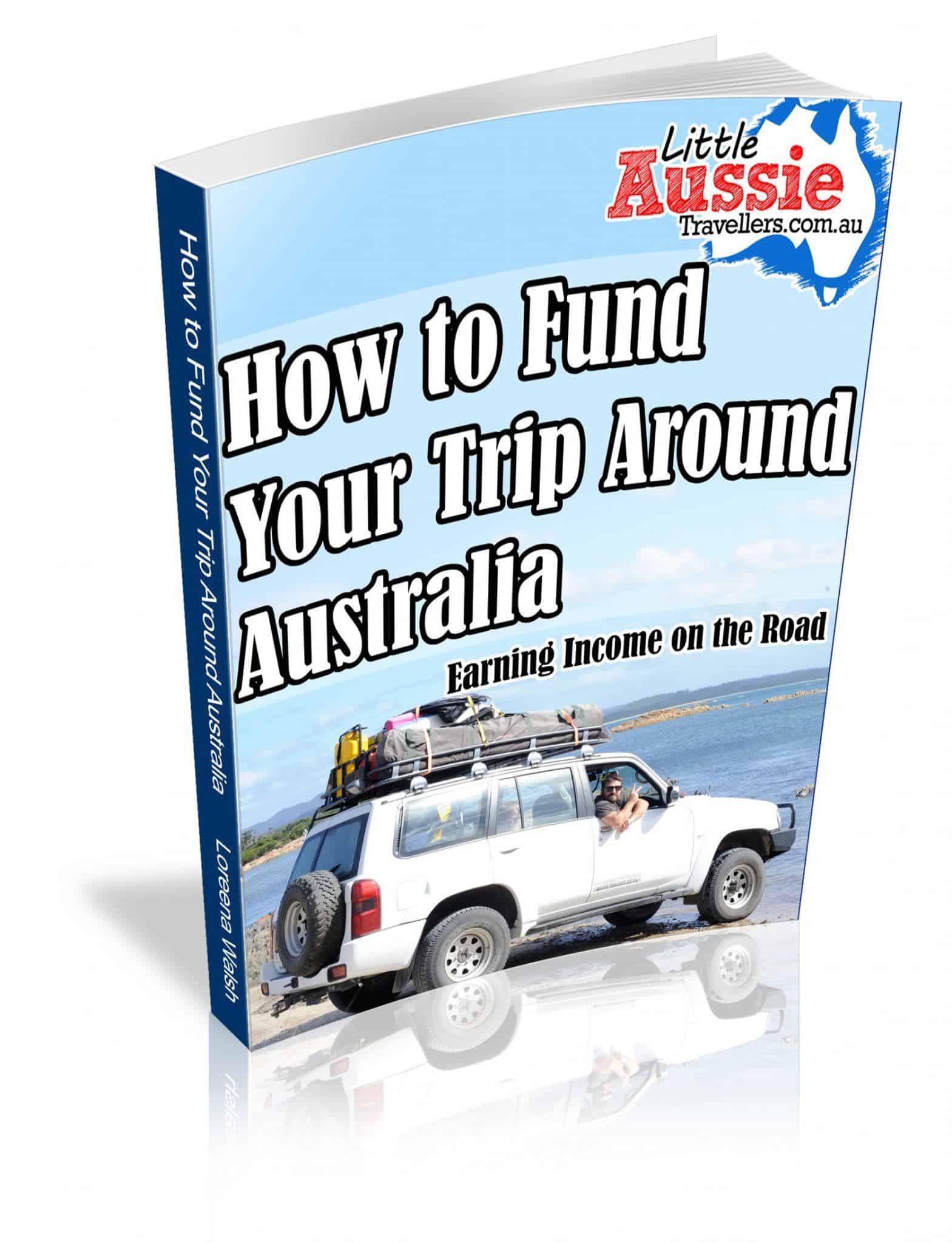
by Loreena Walsh | QLD Destinations & Activities
You all know we love our family holidays, and we’re really passionate about the environment. We really feel it’s important that both tourists, and tourism industry operators understand the immense value that comes with the process of being eco friendly.
While we haven’t been to this destination, we love Queensland holidays and, the Great Barrier Reef is at the top of our dream destinations to visit and write about one day, so we were really pleased to read this news, and wanted to share it with you all:
Today, it was revealed that Lady Elliot Island has stopped selling plastic water bottles to help reduce it’s carbon footprint even further.
We think it’s a great initiative, especially as the island is equipped with a water desalination plant that produces perfect, untainted, pure water available for guests from drinking fountains or taps.
 Here’s some interesting information:
Here’s some interesting information:
“In 2009-10, approximately 373 million water bottles ended up as waste in Australia alone. If we can encourage our guests to live by the mantra of refill not landfill and engage with them to go water bottle free, hopefully this will spread to other communities around Australia and the World.”
“The extracting, packaging and transporting of a litre of bottled water can emit hundreds of times more greenhouse gases than a litre of tap water, so not only are we reducing the amount of bottles but also helping to save the environment. We all need to take a bold stand” said Sonya Mroz, Sales and Marketing Executive of Lady Elliot Island Eco Resort.
The resort has many other initiatives in place including the implementation of a solar power station that has reduced fuel burn by over 70%, which makes you really wonder why every resort can’t do the same!
It’s important to think about the big picture:
It’s not only tourist destinations that should be implementing changes such as this, but within our personal lives, or during any holiday journey, it’s really important to be aware of how we may be affecting the environment.
Being environmentally conscious goes much further than putting your rubbish in the bin, it takes real consideration as to how our entire lifestyle choices from production to consumption may affect the environment around us.
About Lady Elliot Island
Lady Elliot Island is the only resort island on the Great Barrier Reef with a direct flight access to the island airstrip. It’s one of three island resorts located within the Great Barrier Reef, and is situated within the Marine National Park zone. This zoning means that visitors on Lady Elliot are treated to a wonderful year round display of live coral and the iconic Manta Rays along with other amazing wildlife.
There’s lots to do on the island including guided tours in glass bottomed boats, snorkelling, scuba diving, reef walks, beach strolls and even kids activities such as the Reef Rangers Club that runs in NSW/QLD school holiday periods. Seasonal opportunities exist to see dolphins, turtles, whales and a range of bird life.
Lady Elliot Island is on our MUST VISIT destination list (very high up!) we especially can’t wait to see turtle nesting and hatching.
Have you visited the Great Barrier Reef before? We’d love to hear about your experience.

by Loreena Walsh | Family Travel
Eco Family holidays are growing in popularity, yet it’s easy to turn any family adventure into one that is gentle to the environment. You don’t need to rely on expensive eco resorts to share a green holiday experience with your children. We take a look at how you can turn your next family road trip into one that’s green and environmentally friendly.
1. Reduce Packaging:
One of the most environmentally damaging aspects of a holiday is the trash that quickly adds up when purchasing take away food and drink. A really easy way to reduce your environmental footprint while on holidays is to avoid constantly eating take away foods with excess packaging (some of which is non biodegradable). Constantly purchasing drinks is also expensive and creates a lot of waste plastic bottles. Carry stainless steel refillable water bottles for a much more environmentally and economically sound option.
2. Avoid Food Wastage:
The other consideration when eating out all the time is the fact that children often get excited by the menu options, and then distracted by the fact they are eating out, meaning they can easily over order and then not eat what has been purchased. This not only leads to food wastage, but also becomes an expensive part of your holiday.

3. Drive Greener:
While not everyone can drive around in a low emissions electric car, you can do things to reduce your car’s eco footprint when on holidays. Be sure to have a full service done prior to leaving, this will ensure that your car is running correctly. Check tyre pressure, this simple step can help you lower fuel usage, less fuel used equals less cost to the environment. Drive to the conditions, driving fast and erratically is going to make your car struggle much more, driving at a safe, suitable speed puts less stress on your car, again using less fuel, this is especially true when towing.
4. Minimise Washing:
When on holidays, it’s easy to get caught up with having to throw loads into the washing machine and then straight into the dryer, as time is short. If you’re on a beach holiday or spending a lot of time in the water, be sure that swimmers and towels are hung and dried, this will make them last longer. Be sure to dress appropriately for the weather outside, and if camping especially, it’s ok if clothes get a bit dirty and worn a bit longer than they might otherwise be in a home environment.
5. Be Kind to Wildlife:
When travelling within Australia, chances are you’ll come across wildlife in one way or another. It’s important that any families on vacation in Australia understand the considerations that need to be made for co-existing with animals in nature. Consider limiting your driving time to daytime driving where possible. When travelling at dusk or dawn as well as night time, there is a greater chance of hitting and injuring wildlife in your vehicle, as well as doing damage to your vehicle. Another thing to note is that native wildlife should not be fed by visitors. Not only does this encourage them to become accustomed to humans and cause problems for themselves and people, human food can also cause illness and death in some animals.
Most of all, just use common sense. Limit your rubbish output, try to minimise waste, drive safely, be mindful of wildlife, do not pollute or litter, and keep our country looking amazing for all family holiday makers for years to come.
Do you have any eco friendly family holiday hints?

 Here’s some interesting information:
Here’s some interesting information:






